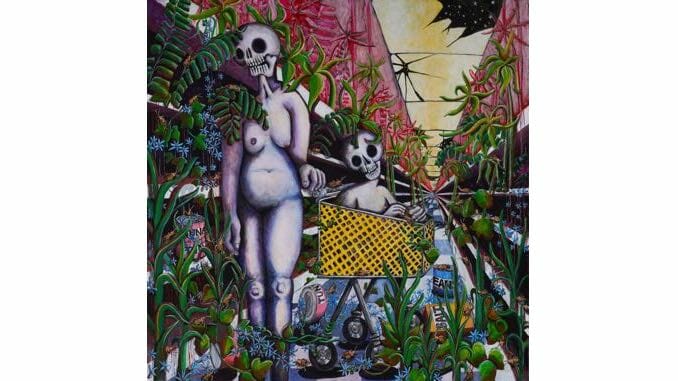Indigo De Souza Is a Light on Any Shape You Take
The North Carolina songwriter’s heart overflows on her instrumentally and emotionally abundant second record

If we write to find out what we think, then Indigo De Souza writes songs to find out how she feels. The Asheville rock singer/songwriter’s sound is marked, more than anything, by an honesty and intensity of emotion that is genuinely difficult to fathom, and that’s especially true on her remarkable new record, Any Shape You Take. It’s human nature to shy away from pain, like how we reflexively flinch and throw up our arms when we perceive we’re about to get hit. But De Souza does the opposite on this album, leaning into every emotional haymaker—bleeding just to know she’s alive.
Though we millennials are quick to joke about it, death has long been thought of as the taboo topic. It’s the ultimate thing we fear, the unknowable, absolute darkness at the end of everything. It’s also the first thing De Souza invokes on her 2018 full-length debut I Love My Mom, singing, “This is probably how I get myself killed,” over gently distorted guitar chords. We’re left to wonder what “this” is, but there’s no wrong answer—no one gets out of here alive. De Souza and death remain well-acquainted on her sophomore album, most explicitly on “Darker Than Death,” “Die/Cry” and exquisite closer “Kill Me.” But Any Shape You Take finds her more concerned with life’s journey than its final destination—the changes we all have to face, the many distinct selves we cycle through, and the love and acceptance with the power to bind them all together.
What is pain if not the gears of change grinding? You can’t have one without the other, a fact of life De Souza unpacks on stunning album centerpiece “Real Pain.” As on most of Any Shape You Take’s 10 tracks, the title lyric is among its first, as if De Souza refuses to hold back her truth any longer than she must: “When pain is real, you cannot run,” she sings softly over steady guitar strums, before hammered toms, sparing synths and distorted riffs carry her to the spectrum’s other end: “When love is real, you cannot sit.” Along the way, she acknowledges that true connection can persevere through pain—“Love might go, but is not gone / I still know you, I still know you”—but the song’s true purpose is to show that suffering can create that connection.
De Souza downshifts halfway through, leaving a lone kick drum, guitar noise and her layered vocals, which themselves gradually fade into the background as they’re inundated with fan-submitted screams, recordings of which De Souza solicited during the pandemic. Evoking the climax of Phoebe Bridgers’ “I Know the End,” the sequence is cathartic on a primal level, a space for shared anguish held forever on wax. That De Souza brings the track home in effortlessly tuneful fashion after that is almost beside the point.
-

-

-

-

-

-

-

-

-

-

-

-

-

-

-

-

-

-

-

-

-

-

-

-

-

-

-

-

-

-

-

-

-

-

-

-

-

-

-

-








































